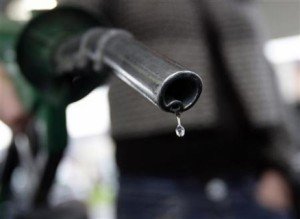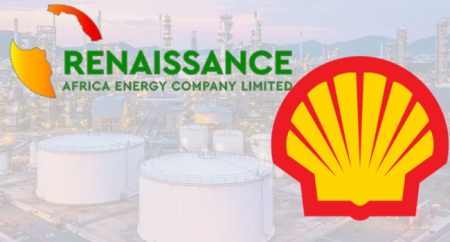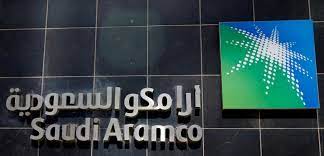
*As oil prices climb
OpeOluwani Akintayo
Lagos — Although the federal government had sounded the alarm of an end to the fuel subsidy era, stakeholders are of the opinion that there could be a re-emergence, especially as oil price currently surges at the international market.
As the economic reality of the COVID-19 started to bite harder on government revenue, the federal government had in March 2020 said it could no longer continue to subsidise fuel.
This heralded a new era- the downstream deregulation where the masses would have to pay whatever the cost of the products, especially since Nigeria does not refine but imports its petroleum products- all charges would have to apply.
However, since the federal government had washed it hands off subsidy, the Pipeline and Products Marketing Company, PPMC kept increasing the prices it sold to marketers. On the other hand, oil marketers also lamented increasing ex-depot prices, with the state petroleum company, NNPC worsening their woes and reducing profits by fixing price ranges- a move marketers argued was against a fully deregulated downstream sector as touted by the government.
Then came the face-off between the marketers and the federal government, where the marketers said they could no longer bear the brunt of subsidy and would have to transfer the burden to Nigerians.
Oil prices had hit $71 per barrel on Monday, more than doubling the $30 benchmark set by the federal government in the 2021 national budget.
The rise above $70 per barrel marks the first time since the COVID-19 pandemic. The U.S. crude also reached its highest in more than two years following reports of attacks on Saudi Arabian oil facilities.
Yemen’s Houthi forces had fired drones and missiles at Saudi Arabia’s oil industry on Sunday, including a Saudi Aramco facility at Ras Tanura vital to country’s petroleum exports.
Oil rising above $70 per barrel means more money for the Nigerian government to implement the 2021 budget, however, it could also sign post the return of subsidy.
Clearly, if the government refuses to subsidise fuel since it now earns more money, the masses may as well get ready to pay more because the landing cost of fuel would keep climbing.
The question now is, who would pay for the higher price of oil at the international market since marketers and government are already slugging it out on the differentials?
An oil and gas expert, Brown Ogbeifun said Nigeria would reap an abundance of excess in terms of revenue generated from oil.
“For instance, the new oil price is over $30 above the 2021 budget benchmark.
“This will mean having some money for the budget implementation instead of borrowing, and also have some excess that could go into the Sovereign Wealth Fund”, he said, adding that higher oil prices is capable of causing inflation.
An Abuja-based economist, Simon Galadima, said the increase in the price of crude oil “is a double-edged sword: it has both good and bad sides.
“The implication for the Nigerian economy is that government revenue will increase and foreign exchange earnings will also go up.
“When government revenue increases, that’ll mean more money to spend on education, health, infrastructure and fight insecurity.
“It also means the value of the Naira will be propped up as forex earnings shoot up. That’s less dollar scarcity hence better value for the naira”.
Fuel scarcity in the past week had left the Nigerian National Petroleum Corporation ruling out any price increase in March.
Now, since government had ruled out the possibility of an extra cost on the masses, and the marketers have blatantly said they would not bear the cost, this leaves the option that the NNPC could resort to fuel subsidy to bridge the gap in the landing cost. Or, can the federal government stay true to its words to have put a stop to fuel subsidy?
Already, marketers are threatening to increase pump price at any attempt by the NNPC to increase the ex-depot price. Marketers obviously do not want to carry the subsidy cross.
A member of IPMAN, Abdulrasheed Olapade in an earlier interview with a Nigerian daily had asked Nigerians to expect an increase in fuel price, saying “no marketer would sell at the government approved price when he is buying at a higher price from third parties especially as the product is not even within their reach.”
Indications are that apart from causing inflation, any further fuel price hike would indirectly weigh on manufacturing and transportation. So, the masses would indirectly pay the price.
This means that even though the increasing price of crude oil at the international market is good news for the government, and more money too, yet, the question still lingers: who will bear the direct burden of high prices of crude oil at the international market- government, masses or marketers? Someone has to carry the cross.
While commenting, the Director-General, Lagos Chamber of Commerce and Industry, Muda Yusuf, said Nigeria “ would see a resurgence of fuel subsidies and associated fiscal leakages.
“Smuggling of petroleum products will intensify. These are the flip sides of rising crude oil prices,” he said.
Deputy President, Independent Petroleum Marketers Association of Nigeria, Debo Ahmed, said “it’s not the pricing that’s a problem, but the exchange rate differential.”
“Since we’re importing and are not refining locally, you should expect that it’ll affect the price per litre.”



